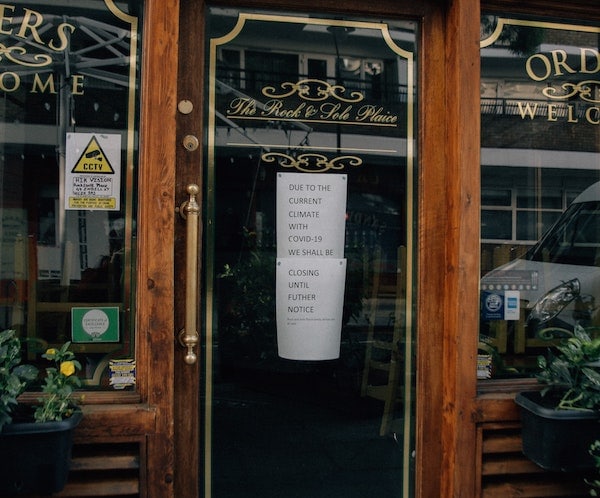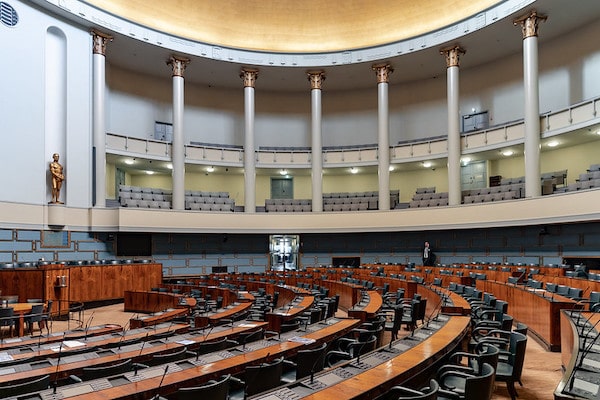In his summer statement, Rishi Sunak, the British Chancellor of the Exchequer, announced that VAT (Value-Added Tax) would be dramatically cut from 20% to 5% for the hospitality and tourism sectors in the UK until the end of the year as part of a wider corona rescue package. Hoping that any price cuts would encourage people to head out and spend in order to get the economy moving, the government stopped short of forcing businesses to pass on the cut to the customers. As some restaurants, cafes and hotels chose to keep the tax savings to prop up their failing businesses, headlines evidencing the controversial nature of this practice began appearing: UK restaurants: tensions boil over as diners and chefs fall out over VAT cuts and costly no-shows (The Guardian, 19th July 2020). These headlines came after British newspapers had widely publicized the initial expectation that the cut would be passed on to customers: VAT cut explained – everything that will be cheaper from Wednesday including food (The Mirror, 15th of July 2020). While it may seem unimportant who pockets the initial saving, as the aim was to keep small businesses afloat and their employees in jobs, the wider public considered the actions of these restaurants unfair. Customers demanded that the cut be passed on to them in order to support their consumption in times when their own finances and jobs were at risk. The customer is after all ‘the public’, and the one who generally picks up the VAT bill. Meanwhile restaurateurs wished to keep savings themselves to plug the ever-expanding gaps in their finances.

We are in a moment where governments, international agencies, civil society and taxpayers are thinking about taxes as a tool for managing the looming economic crisis. But where the tax breaks fall and how this translates into ‘helping the economy’ are ideological, politically charged moves that reverberate unpredictably through social relationships. For instance, bailing out the private sector, such as the hospitality or airline industry, turns on its head the common refrain that the private sector funds public sector spending. As such, rescue packages for the private sector draws attention to the fallacy of the public/private divide and picks away at peoples’ assumptions about where wealth is created. Typically, in times of economic boom and relative stability, the private sector is seen as funding the public sector through tax-payments, while the public sector appears dependent on the ‘growth’ stimulated by the private sector. The pandemic then poses a challenge to such narratives, given the visible role that states have assumed in ensuring that struggling industries within the private sector still exists in a post-corona world. The private sector is consequently shown to be fundamentally dependent on the state’s capacity to rescue its business operations through fiscal interventions such as VAT-cuts, direct grants, and furlough schemes.
For instance, bailing out the private sector, such as the hospitality or airline industry, turns on its head the common refrain that the private sector funds public sector spending.
Paradoxically, taxes thus contribute to a public/private ‘effect.’ In other words, taxes are crucial to the economic stories that conjure up the divide between the private and public sectors, making them appear as distinct, separate realms of action. Simultaneously, taxes are also a bureaucratic and financial technology that blurs these very same boundaries, revealing dynamics of cause and effect that manifest their ultimate inseparability as part of one financial system. For instance, David Graeber (2015: 74-75) has described how corporate tax cuts in the US from the 1980s onwards resulted in private industry channelling less money into their research budgets and private research labs, as they no longer worked to minimise taxable profits. This led to less innovative research being generated from within private corporations compared to the immediate post-war era. Such cases reveal how new tax policies can change the very ‘character’ of the private sector and render the public/private sector effect visible.
In other words, taxes are crucial to the economic stories that conjure up the divide between the private and public sectors, making them appear as distinct, separate realms of action.
Alongside the conversations about who benefits from new tax proposals and what taxes will ‘do’ in these rescue packages, sit the discussions about how the dwindling public coffers might best be re-filled over the coming years. Recent months have been filled with new questions such as: who has the right to tax, what can be taxed, and how can taxation be scaled up to address issues that surpass a single nation state, like a global pandemic? As an example of scaling up taxation, the European Union recently presented a proposal for new EU-level taxes as a mechanism to partially fund the EUR 750 billion corona rescue package, which was approved by the 27 member states in July 2020 after four days and nights of relentless negotiation. Among direct contributions from the member states and EU-level debt (also a hotly contested issue), the package includes a proposal to a new set of levies, including a plastic tax, a digital tax, a carbon tax, and also potentially aviation taxes and levies on financial transactions. These proposals, for the first time in the EU’s history, would render the Union into a ‘tax-collector.’ While EU-level taxes were already under discussion before the pandemic, it seems that the economic uncertainty that ensued expedited the tabling of plausible tax proposals for future deliberation and national parliamentary approval. The proposal represents a landmark shift in strategizing for EU’s future funding structure way beyond the corona rescue package, which thus far has relied on direct contributions from member states, import duties, and fines.
EU’s tax proposals challenge an idea of taxation as the sole right of a sovereign state, proposing that taxes can do ‘good’ beyond delivering public goods in a national territory. However, like the rescue package as a whole, EU’s tax proposals will likely generate political divisions in national parliaments. For instance, when the Finnish parliament discussed the rescue package in early June 2020, many MPs commented on the feasibility of the EU tax proposals. Clear fault-lines existed between the generally approving left-leaning parties and highly critical right-wing parties. MPs from the Finnish right-wing populist party, True Finns, appealed to the loss of ‘hard-fought’ sovereignty and independence, if Finland allowed the EU the right to tax. Centrist MPs raised questions on the ‘differing capacities’ of various member states to tax. Social democrats, Greens, and Left Alliance asked for their peers to recognize EU-level taxes as not only a means to mitigate the economic uncertainty of the pandemic, but address other challenges such as climate change and the economic power of tech firms and multinational financial institutions. At a moment when collective vulnerability calls for collective solutions, the EU’s tax proposals shift notions of who can tax and what ‘tax sovereignty’ means in the post-corona world. In its Nordic member states, where national tax agencies are generally respected and trusted (see Boll 2014; Larsen 2017), EU tax proposals may spark questions about the EU’s capacity to act as a ‘trustworthy’ tax-collector, which connects to larger debates about the legitimacy to tax (Rawlings and Braithwaite 2003). At their core, the EU tax proposals highlight the generative role of taxes as not a mere ‘reaction’ to the pandemic, but a fiscal flow that enacts new moral visions of the Union, such as environmental sustainability.

At a moment when collective vulnerability calls for collective solutions, the EU’s tax proposals shift notions of who can tax and what ‘tax sovereignty’ means in the post-corona world.
In this moment when health and ecological crises pose major challenges to national and regional economies, there is an opportunity to re-think the role of taxes for realizing new kinds of economic and political futures. Uniquely, the desire to ‘think big’ and explore ‘radical’ fiscal policies is suddenly not a fringe position, but embraced by governments and international institutions; alongside the EU, the OECD are recommending a ‘gloves off’ fiscal approach to dealing with the economic fall out of the pandemic (2020). As the VAT-cut debate in the UK demonstrates, taxes elicit new ways of thinking about the mutual dependence between the public and private sectors. We may also need to consider who are the ‘rightful’ tax-collectors at a time when tax sovereignty might not adequately respond to the existing challenges. Taxation undoubtedly entails its own politics of fiscal relations, revealing who are considered as ‘deserving’ of support from collective pools of revenue. Taxes are a form of bureaucratic power with a long history as an extractive technology of rule, especially by colonial governments (Gardner 2012, Meagher 2018, Roitman 2005), but the pandemic has also highlighted taxation as a politically charged field of action that materialise potential futures filled with both hope and contestation. This suggests that making decisions on what is taxed and who can collect taxes are going to be increasingly important questions. What public money should best be spent on, how this will shape the economy, and who are the rightful beneficiaries will remain contested issues, as nations and international agencies continue planning towards a post-corona economic future yet unknown.
References
Björklund Larsen, L. 2017. Shaping taxpayers: Values in action at the Swedish Tax Agency. New York & Oxford: Berghahn Books.
Boll, K. 2014. Shady car dealings and taxing work practices: An ethnography of a tax audit process. Accounting, Organizations and Society 39(1): 1–19.
Gardner, L. 2012. Taxing colonial Africa: the political economy of British imperialism. Oxford University Press.
Graeber, D. 2015. The utopia of rules: On technology, stupidity, and the secret joys of bureaucracy. Melville House.
Meagher, K. 2018. “Taxing times: taxation, divided societies and the informal economy in Northern Nigeria.” Journal of Development Studies 54 (1): 1–17.
Rawlings, G. and Valerie Braithwaite. 2003. “Voices for Change: Australian
Perspectives on Tax Administration. Introduction.” Australian Journal of Social Issues 38(3): 263–267.
Roitman, J. 2005. Fiscal disobedience: An anthropology of economic regulation in Central Africa. Princeton University Press.
Tax and Fiscal Policy in Response to the Coronavirus Crisis: Strengthening Confidence and Resilience. 19th of May 2020, © OECD 2020



